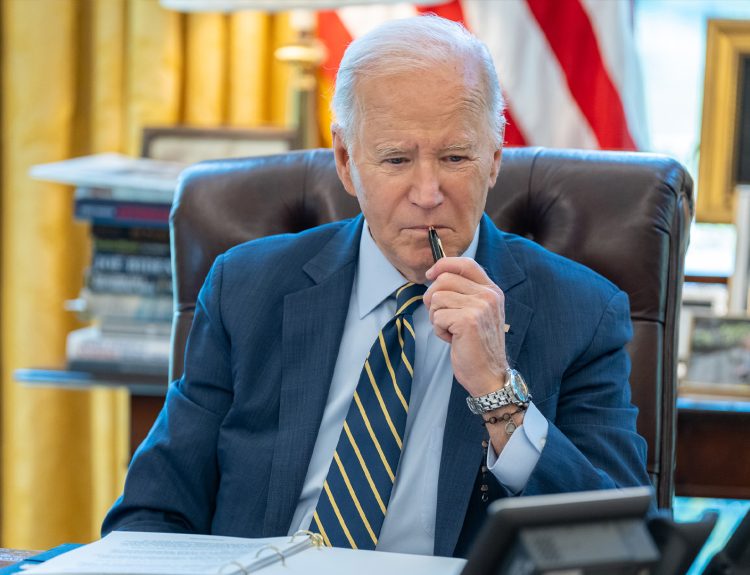The United States Government lives to see another day – or at least another couple of weeks. Both chambers of Congress – the House of Representatives and the Senate – passed a short-term funding bill this week, giving Republicans and Democrats more time to strike a long-term deal for the remainder of the year. Here’s what you need to know!
Congress Avoids Government Shutdown
It all started at around 2:00 p.m. on Feb. 29 – when the House voted 320-99 in favor of a short-term funding bill. Nearly six hours later, the Senate passed that same bill with a 77-13 majority vote. President Joe Biden is expected to sign the bill into legislation.

If Congress wasn’t able to pass the bill, a partial government shutdown would’ve begun on March 1 -and a full shutdown would’ve followed on March 8. The passing of the bill extends those deadlines to March 8 (partial) and March 22 (full) – and they did it with bipartisan support.
97 House Republicans Voted Against the Bill
Of the 99 Representatives who voted against the bill, 97 of them were Republicans – compared to 113 Republicans who voted to approve the bill. Jim Jordan (OH), Marjorie Taylor Greene (GA), Matt Gaetz (FL), and Lauren Boebert (CO) were among those who voted against it.

The House is currently composed of 213 Democrats, 219 Republicans, and three others. Of the 213 Democrats, only two of them voted against the bill – Massachusetts Rep. Jake Auchincloss and Illinois Rep, Mike Quigley.
13 Republican Senators Voted Against the Deal
The bill was then sent to the Senate, and it made its way through with ease – garnering a total of 77 supporters. For reference, the Democrats currently hold the majority at 51-49. None of the Democrats voted against the bill, but 13 of the Republicans did.

The votes aren’t over – both the House and Senate will need to pass a long-term bill to fund the government through fiscal year 2024. They have one week to do that before certain agencies shutdown. In the meantime, let’s take a closer look at the 13 Senate Republicans who voted in favor of the government shutdown.
13. Marsha Blackburn, Tennessee
Marsha Blackburn is a 71-year-old Republican who spent four years in the Tennessee Senate, 16 years in the House, and has been one of Tennessee’s US Senators since 2019. She serves alongside Bill Haggerty – a Republican who voted in favor of the funding bill.
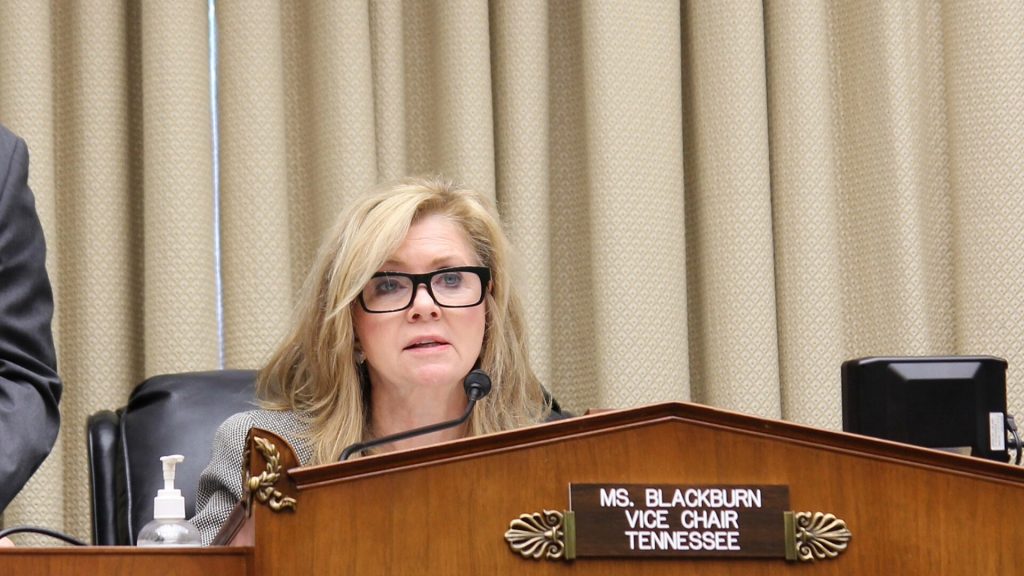
Blackburn is a huge supporter of Donald Trump and was one of the Republican Senators who threatened to vote to oppose certification of the 2020 presidential election – though she later voted in favor of it after the Jan. 6 attack on the Capitol.
12. Mike Braun, Indiana
Mike Braun is the founder and former CEO of Meyer Distributing. He spent three years in Indiana’s House of Representatives before being elected a US Senator in Indiana. He’s a ranking member of the Special Committee on Aging and two subcommittees.
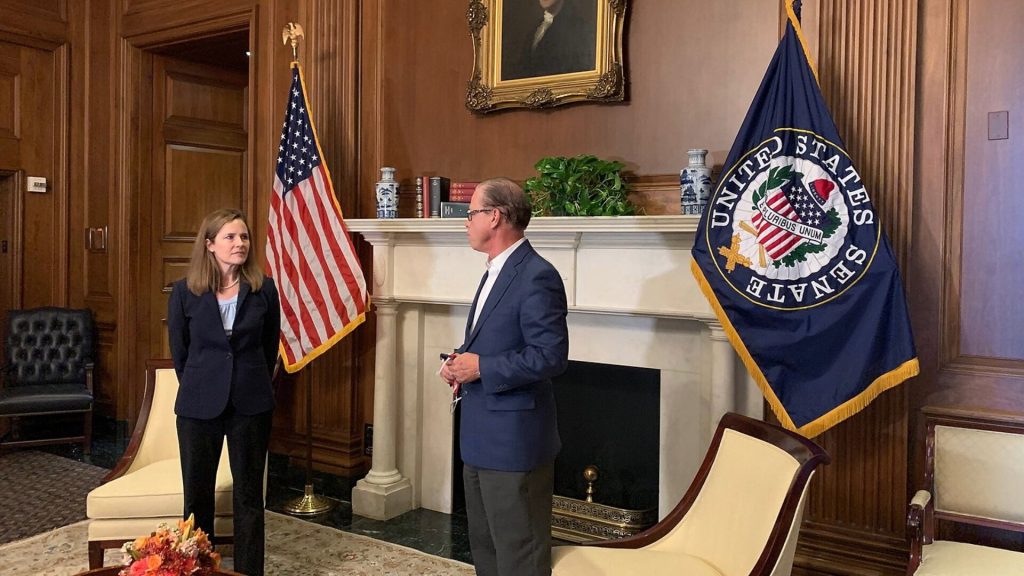
Braun is known as one of the most conservative individuals in the Senate today. He’s a strong supporter of Trump and even supported the former president’s efforts to overturn the election. He’s currently running for Governor of Indiana.
11. Ted Budd, North Carolina
Ted Budd was a member of North Carolina’s House of Representatives between 2017 and 2023, but made the jump up to the Senate last year after defeating Cheri Beasley. He also owns a gun store in Rural Hall.
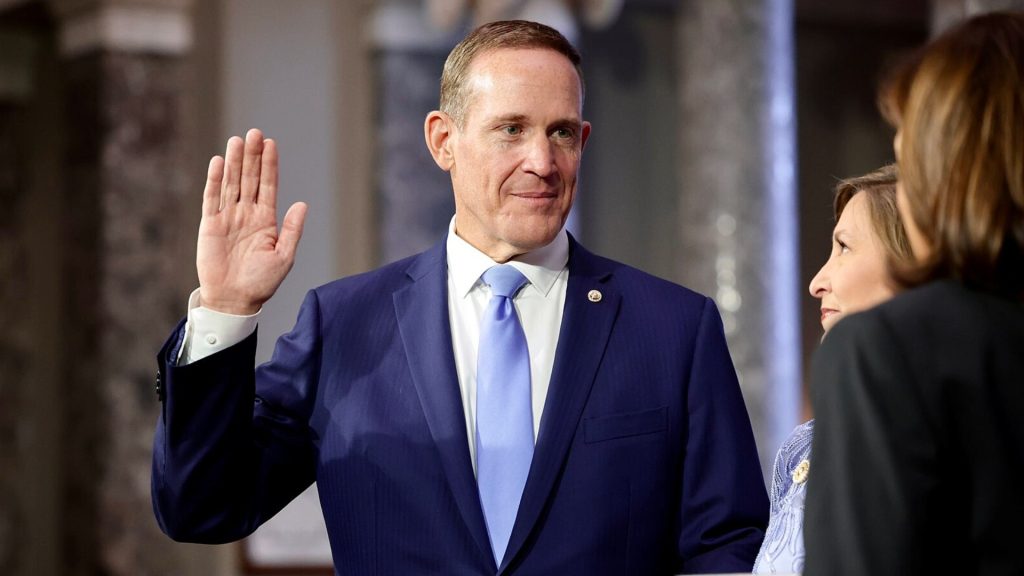
Budd has supported Trump from the very beginning. He was one of the 147 Republican Reps. who refused to accept the results of the 2020 election. Trump went on to endorse Budd – which helped him gain enough support to keep North Carolina red.
10. Mike Crapo, Idaho
Mike Crapo is a ranking member of the Committee on Finance and the Chair of the Senate Banking Committee. He spent three terms in the House of Representatives and has been in the Senate since 1999 – though his support in elections has been declining.
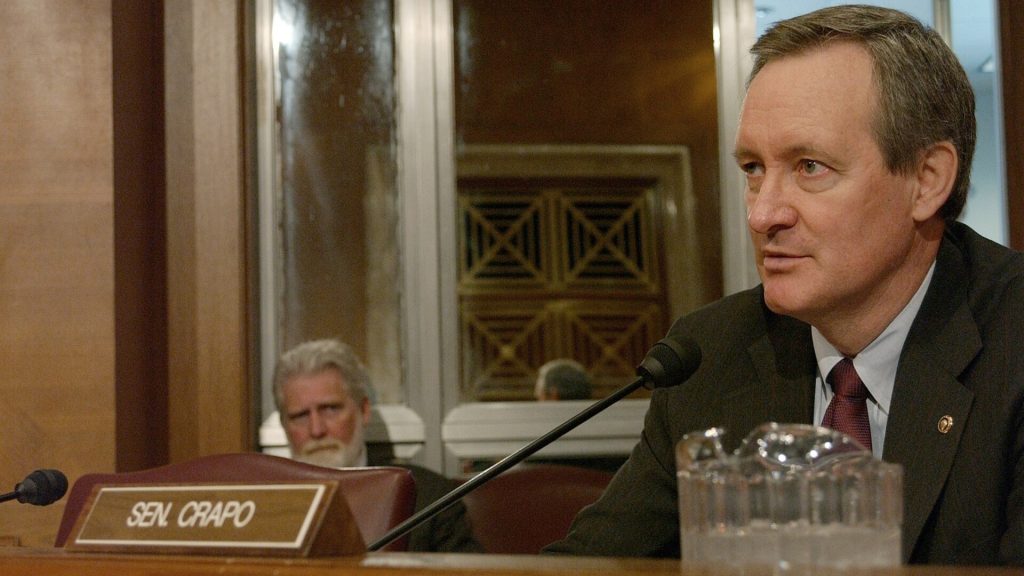
In January, Crapo released a letter in support of Donald Trump. “Today I add my voice to the growing number of people standing behind Donald Trump because we know he will put America and Americans first,” he wrote.
9. Ted Cruz, Texas
Ted Cruz, perhaps the most famous name on this list, has been a Texas Senator for 11 years. He’s a ranking member of the Senate Commerce Committee, Subcommittee on the Constitution, and Subcommittee on Aviation Safety, Operations, and Innovation.

Cruz used to be one of Trump’s most vocal critics, but he quickly turned into one of his biggest allies. By the time the 2020 election ended, Cruz was feeding into Trump’s claims of a stolen election and even objected to the certification of the results.
8. Josh Hawley, Missouri
Josh Hawley has been vocal about his frustration over the short-term funding bill – even criticizing his fellow Republicans for not getting a deal done in time. Yet, he was one of the 13 ones who voted against it on Thursday.

“This is why I voted against the last [continuing resolution],” Hawley said on Tuesday. “They’ve just been kicking this can down the road. I can’t believe that they didn’t get work done over the weekend. They’ve had months to do this stuff, I mean my patience has run out.”
7. Ron Johnson, Wisconsin
Ron Johnson has been in the Senate for 13 years and currently serves as the Chair of the Senate Homeland Security and Governmental Affairs Committee.
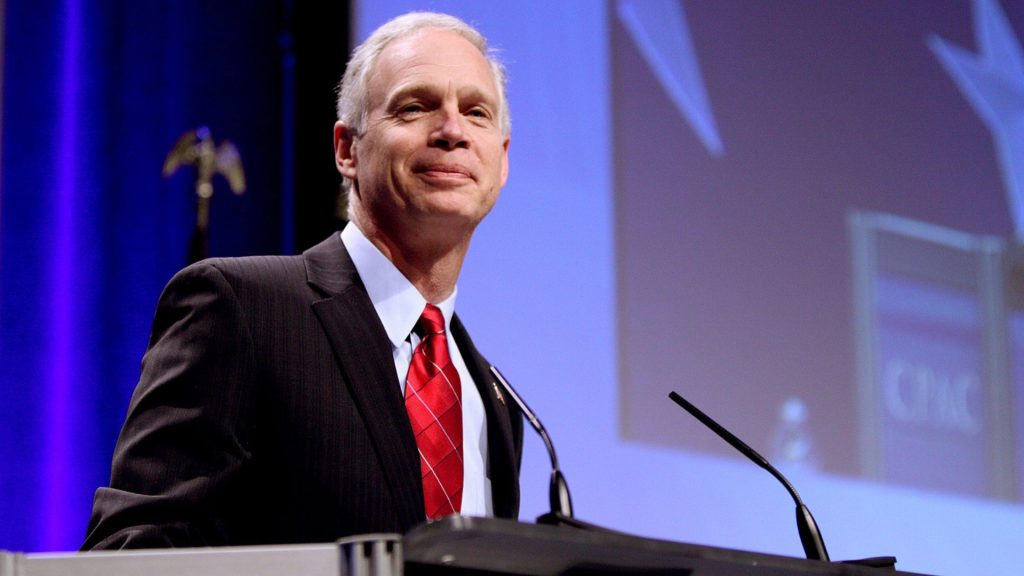
He has a history of poor judgments, including spreading misinformation during COVID-19, rejecting the science behind climate change, and discrediting the results of the 2020 general election. He, of course, is a huge supporter of Trump.
6. Mike Lee, Utah
Mike Lee became a Senator in 2011 and is a ranking member of the Subcommittee on Antitrust, Competition Policy and Consumer Rights – he also serves as Chair of the Joint Economic Committee. He has made it clear what he wants to see out of the funding bill.
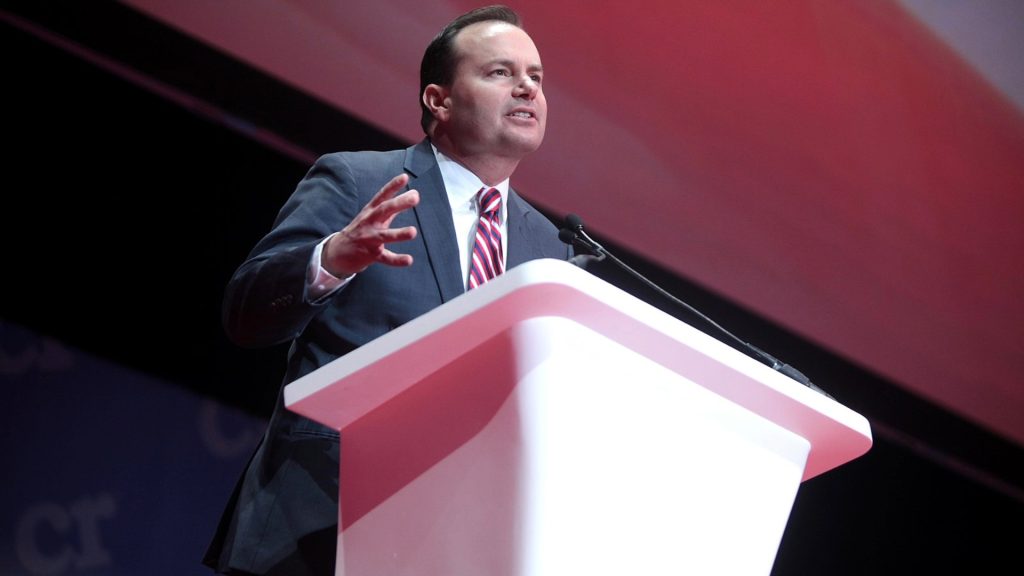
“The spending bill just passed by Congress funds the government until March 22, giving the GOP another chance to (1) force Biden to enforce the border (by attaching HR2 to a spending bill), and (2) cut spending by $130 billion (by rejecting an earmark-laden omnibus). Let’s do it,” he wrote on X on March 1.
5. Roger Marshall, Kansas
Roger Marshall spent four years in Kansas’s House of Representatives before being elected as a US Senator in 2021. He’s a Trump supporter through and through, and has voted in line with Trump nearly 98% of the time.

On Thursday, a few hours before the Senate vote began, Marshall took to X to talk about the nation’s debt. “We are over $34T in debt, and still, there have been no meaningful efforts taken by Congress to reverse course,” he wrote.
4. Eric Schmitt, Missouri
Eric Schmitt had an interesting journey to the Senate. He spent eight years in the Missouri Senate before spending two years as the 46th Treasurer of Missouri and 43rd 43rd Attorney General of Missouri. He was elected to the US Senate in 2023.

He has been a vocal critic of Biden’s handling of the border crisis. “The U.S. border should be America’s number one concern right now. You really don’t hear that from Washington. Huge disconnect,” he wrote on X on Feb. 27.
3. Rick Scott, Florida
Rick Scott was the 45th Governor of Florida between 2011 and 2019. He defeated Bill Nelson in the 2018 election and is currently serving alongside Marco Rubio in Florida. He also serves as Chair of the National Republican Senatorial Committee.
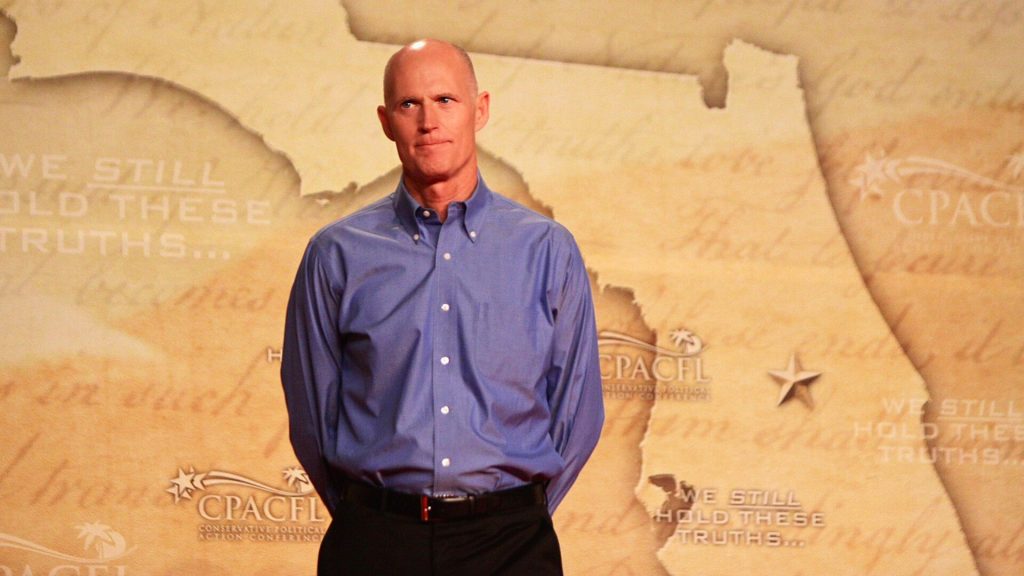
“Democrats’ reckless spending has our country barreling down a path of fiscal disaster. It’s why I’m fighting EVERY DAY to get America’s fiscal house in order before it’s too late,” he wrote on X on Feb. 29 – joining other Republicans in their criticism of the deficit.
2. Tommy Tuberville, Alabama
Tommy Tuberville is a former college football head coach (Auburn, Mississippi, Texas Tech, Cincinnati) who assumed office in 2021 – a major career change for someone who had a 159-99 record as a football coach.
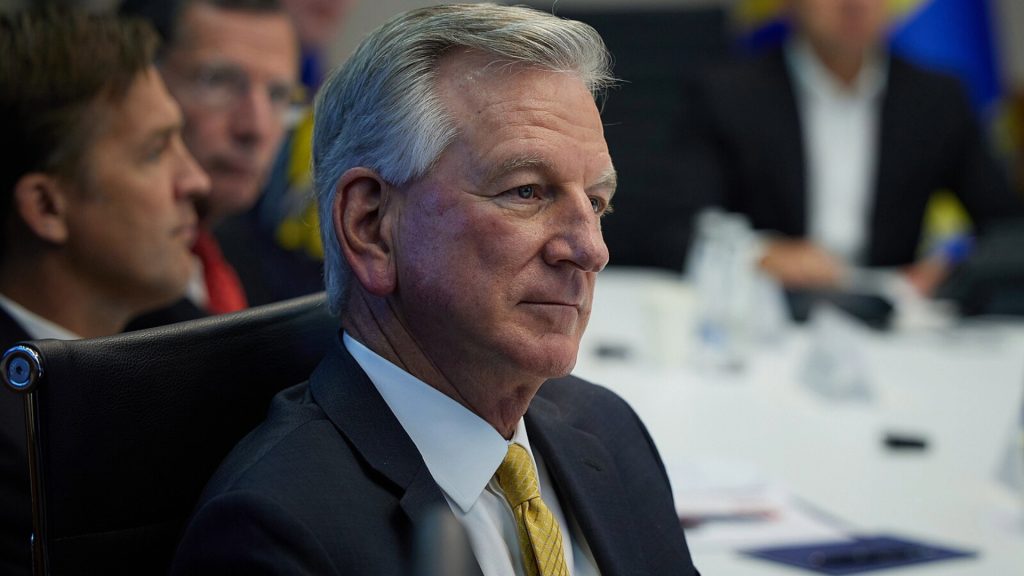
Tuberville is a clear supporter of Trump getting re-elected, and is calling on Mitch McConnell’s replacement to help get the job done. “That person has got to go out as much as possible and stand next to Donald Trump and help get him elected,” he said in a recent interview.
1. J.D. Vance, Ohio
J.D. Vance is a venture capitalist who rose to prominence with the release of his hit book, Hillbilly Elegy in 2016. He entered the Senate race in 2021, won the Republican primary in 2022, and was elected to office in 2023.

Vance, like the others, is a Trump supporter. In fact, he’s still challenging the results of the 2020 election and recently said, “Do I think there were problems in 2020? Yes, I do.”




